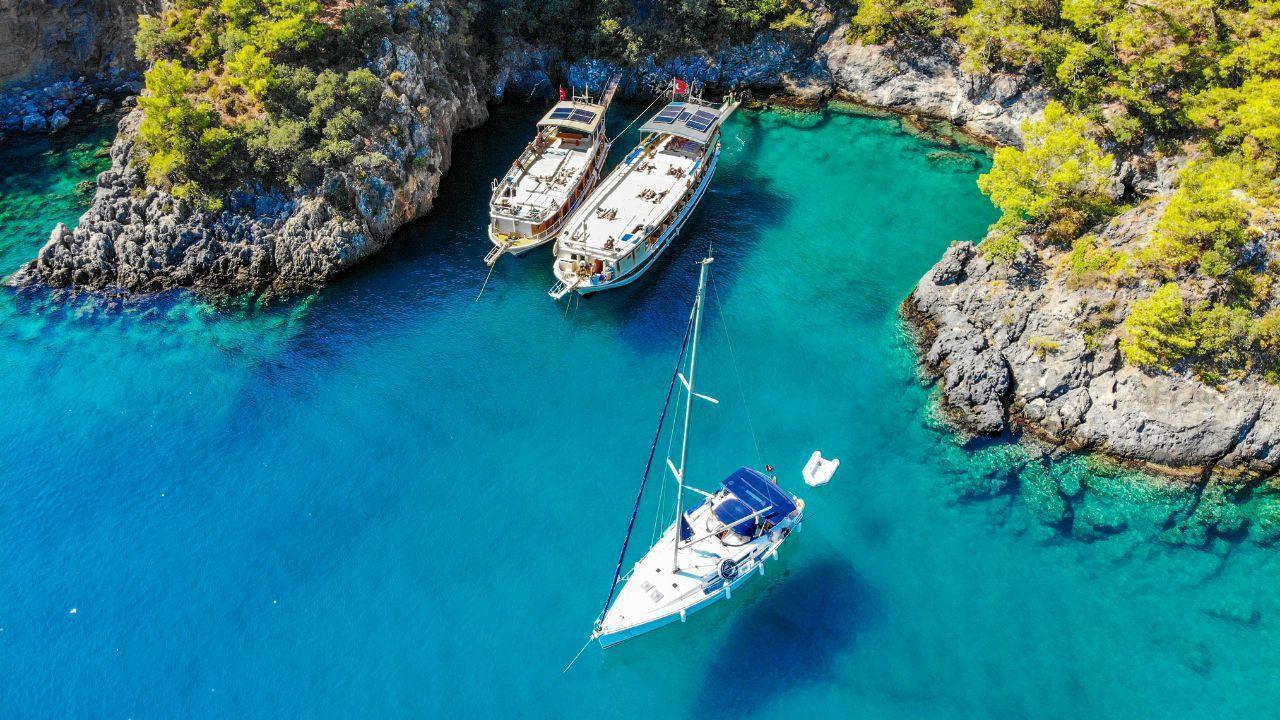
Post by: Vansh Kumar
Tourism is much more than a leisure activity. It's a powerful driver of economic growth, offering significant benefits to both local and national economies. From creating jobs to generating income for businesses, tourism has a direct and lasting impact on economic development. In this article, we'll explore how tourism helps the economy and why it plays such a crucial role in today's global marketplace.
One of the most obvious ways tourism helps the economy is through job creation. The tourism sector employs millions of people worldwide, offering jobs in a variety of industries such as hospitality, transportation, food service, and entertainment. In fact, the World Travel & Tourism Council (WTTC) reports that tourism is responsible for creating 10% of all jobs globally.
These jobs range from hotel staff and tour guides to flight attendants and restaurant workers. As tourism grows, it spurs demand for more workers, leading to job opportunities in both urban and rural areas. For many regions, especially those heavily reliant on seasonal visitors, tourism offers a stable and consistent source of employment.
Tourism also supports local businesses, ranging from small family-owned shops to large retail chains. When tourists visit a destination, they spend money on a variety of services, from accommodation and dining to souvenirs and activities. This influx of spending helps local businesses thrive and encourages the opening of new enterprises to meet the demands of visitors.
In fact, tourism helps stimulate growth in related sectors, such as construction, retail, and transportation. Hotels, restaurants, and shops are able to hire more staff, expand their operations, and even open new locations as tourism continues to increase. The boost to local businesses creates a ripple effect, where one sector’s success leads to the growth of others.
Governments at all levels benefit significantly from the tourism industry. Tourists spend money on accommodations, meals, transportation, and activities, and a large portion of this spending is subject to taxation. These taxes, whether in the form of sales taxes, hotel taxes, or entry fees to tourist attractions, generate substantial revenue for local and national governments.
This revenue is then used to fund important public services, infrastructure projects, and community programs. In some regions, tourism-related taxes make up a significant portion of the government’s budget, which helps reduce the tax burden on local residents. This financial support allows governments to invest in the very infrastructure that attracts tourists, such as airports, roads, and public transport systems.
For many regions, especially those that rely heavily on one industry such as agriculture or manufacturing, tourism offers an opportunity for economic diversification. By investing in tourism, a region can spread its economic risk and reduce reliance on one single sector. This is particularly important in areas where other industries may be in decline or facing challenges.
For example, small towns that once depended on agriculture can attract tourists by promoting local cultural experiences, festivals, and historical landmarks. This helps to diversify the local economy and create sustainable growth by offering alternative income streams. Tourism can even revive entire regions by providing an alternative source of income and employment.
As tourism grows, so does the need for improved infrastructure. To accommodate the increasing number of visitors, destinations often invest in better roads, airports, public transportation systems, and communication networks. These infrastructure developments not only benefit tourists but also improve the quality of life for local residents.
For instance, a country that builds new highways to make travel easier for tourists also benefits from smoother transportation for its own citizens. Similarly, the development of more efficient airports or train systems can help both visitors and locals save time and money. Ultimately, the infrastructure improvements fueled by tourism contribute to a stronger, more resilient economy.
Tourism also plays a significant role in boosting exports and increasing foreign exchange earnings. When international visitors travel to a country, they spend money on various services, bringing in foreign currency. This injection of foreign exchange is vital for countries that rely on tourism as a primary source of revenue.
This influx of foreign currency helps stabilize the nation’s economy and can be used to pay for imported goods and services. The tourism industry essentially acts as a form of export, with tourists “exporting” their money to spend on the country’s goods and services, helping to balance trade deficits and stimulate economic growth.
Sustainable tourism practices are increasingly recognized as essential for maintaining long-term economic growth. Instead of focusing solely on short-term profits, many destinations are now prioritizing sustainable practices that preserve natural resources, protect cultural heritage, and minimize environmental impact. This type of tourism ensures that the economic benefits continue to flow for generations to come, without depleting the resources that make a destination attractive in the first place.
For example, eco-tourism focuses on preserving natural landscapes while providing an income for local communities. This approach not only supports the economy but also ensures that the tourism industry remains viable in the long term, balancing economic growth with environmental sustainability.
This article explores how tourism helps the economy by emphasizing its vital role in job creation, supporting local businesses, generating tax revenue, and boosting infrastructure development. Tourism also encourages economic diversification, promotes sustainable practices, and contributes to foreign exchange earnings. By improving infrastructure, creating new employment opportunities, and driving growth in related sectors, tourism has become a key pillar of economic prosperity for many regions worldwide.
This article is intended for general informational purposes. The economic impact of tourism can vary by region, and conditions may change over time. Always refer to official sources for the latest data and trends in tourism and its economic effects. By dxb news network.
#trending #latest #HowTourismHelpsTheEconomy #EconomicImpactOfTourism #TourismGrowth #JobCreationThroughTourism #TourismAndEconomy #SupportLocalBusinesses #TourismBenefits #EconomicDevelopment #SustainableTourism #BoostingTheEconomy #breakingnews #worldnews #headlines #topstories #globalUpdate #dxbnewsnetwork #dxbnews #dxbdnn #dxbnewsnetworkdnn #bestnewschanneldubai #bestnewschannelUAE #bestnewschannelabudhabi #bestnewschannelajman #bestnewschannelofdubai #popularnewschanneldubai

South Korea’s Constitutional Court will decide on President Yoon Suk Yeol's impeachment Friday, a ruling that will likely deepen political divisions....Read More.

A 42-year-old Indian man was arrested in Singapore for threatening a cabin crew member and disturbing a flight under the influence of alcohol....Read More.














ChatGPT Hits 1 Million Users in an Hour with Ghibli AI Art
OpenAI's new image feature, creating Ghibli-style AI art, goes viral. ChatGPT added 1 million users

7 Free Ghibli-Style AI Image Editors to Try Now
Transform your images into Ghibli-style art with these 7 free AI tools. From dreamy landscapes to an

China Conducts Military Drills Near Taiwan
China's coast guard conducted patrols, inspections, and drills near Taiwan as Beijing announced mili

Man City’s Haaland suffers ankle injury, awaits tests
Erling Haaland picked up an ankle injury in Man City’s FA Cup win. He will see a specialist to asses

New E-Skin Enables Touchless Control and Robot-Like Sensation
Revolutionary e-skin mimics human touch, allowing touchless control, aiding robots, and helping peop